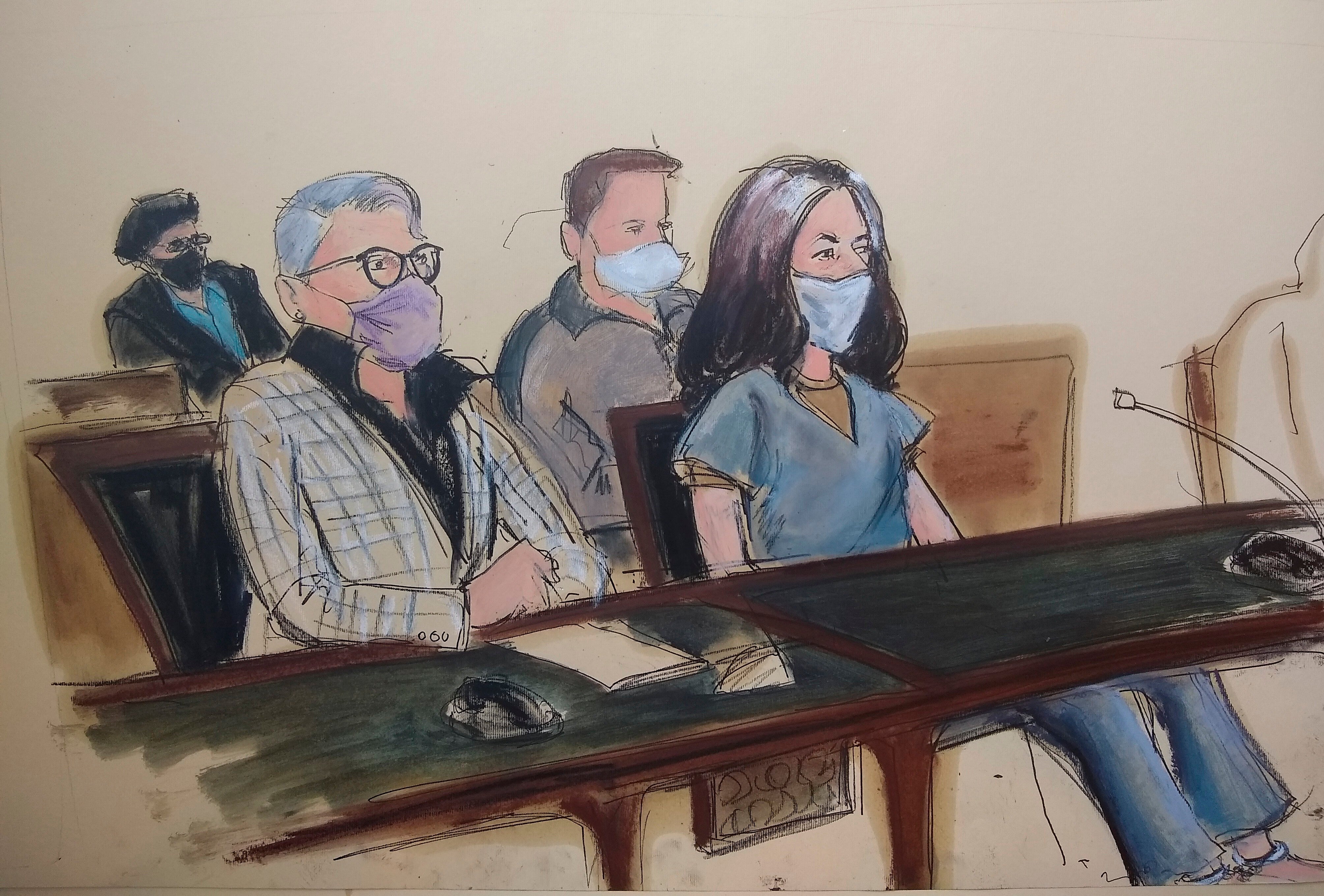Ghislaine Maxwell's sleep loss in jail concerns judges
Appeals judges hearing bail arguments seemed sympathetic to claims that Ghislaine Maxwell is unjustly kept awake at night by guards ensuring she doesn't die in jail like Jeffrey Epstein did while awaiting a sex trafficking trial

Appeals judges hearing bail arguments seemed sympathetic Monday to claims that British socialite Ghislaine Maxwell is unjustly kept awake at night by guards ensuring she doesn’t die in jail like Jeffrey Epstein did while awaiting his sex trafficking trial.
Two of three judges on a 2nd U.S. Circuit Court of Appeals panel in Manhattan expressed concern about light shined in her cell every 15 minutes at night as Federal Bureau of Prisons guards make sure she’s breathing.
They did not, however, seem necessarily inclined to free Maxwell, 59, on bail before a July 12 trial on charges that she procured teenage girls for Epstein to sexually abuse and sometimes joined in the abuse. She has pleaded not guilty. Bail has been rejected three times since her arrest last July.
“Is she a suicide risk or not?” Circuit Judge Richard J. Sullivan asked Assistant U.S. Attorney Lara Pomerantz. “Has the BOP concluded she’s a suicide risk or is it some other reason why they’re shining lights all night long?”
Pomerantz said it was a routine guards employed to ensure inmates are breathing. She said guards shine light at the ceiling above where Maxwell sleeps rather than at her eyes when they check her breathing.
Her comment was challenged by Circuit Judge Pierre N. Leval, who repeatedly asked if Maxwell posed a suicide risk.
“Routine to shine a light into the eyes of every prisoner every 15 minutes during the night? Are you really telling us that?” he asked.
“Your honor, I can’t tell you what is done as to all inmates, but what I can say is that we have not been told that she is a suicide risk,” Pomerantz responded.
Attorney David Markus, representing Maxwell on appeal, said she is not suicidal.
“There’s no evidence she’s suicidal. Why is the Bureau of Prisons doing this? They’re doing it because Jeffrey Epstein died on their watch. And again, she’s not Jeffrey Epstein, this isn’t right,” Markus said.
Epstein killed himself in a Manhattan lockup in August 2019 as he awaited trial.
“One of the main complaints in the defendant’s briefing is that she is being improperly treated as a suicide risk in a manner that makes her life hell and doesn’t allow her to sleep and makes it very difficult for her to prepare” for trial, Leval said.
Defense lawyers have complained that Maxwell is deteriorating in jail, where she is repeatedly searched and is filmed outside her cell. Prosecutors counter that she remains healthy and has been given accommodations other prisoners lack.
The judges also seemed concerned that Maxwell isn't permitted to wear an eye mask that wraps securely around her head.
Markus said Maxwell puts a sock or towel over eyes so she can sleep at the Metropolitan Detention Center in Brooklyn.
“The government used the word routine to say how Ms. Maxwell’s being treated in MDC. There is absolutely nothing routine about it. She’s being treated differently than any other inmate ever in that institution,” he said.
Bookmark popover
Removed from bookmarks